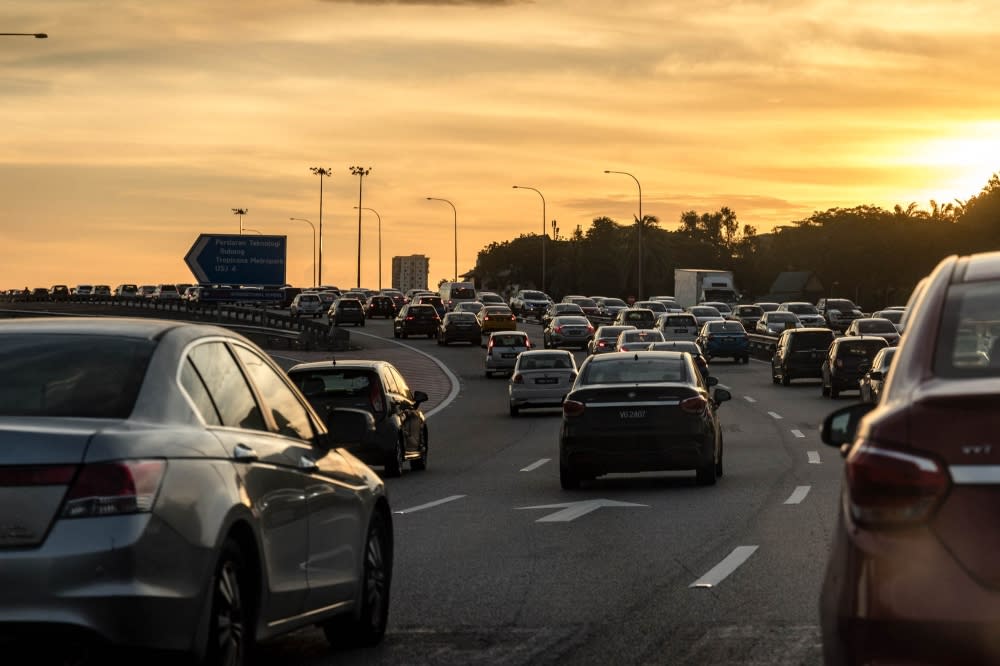Report: Klang Valley motorists spend RM6.5b on fuel a year due to traffic jams

KUALA LUMPUR, Feb 21 — Motorists in Kuala Lumpur and Selangor spend approximately RM6.8 billion annually on petrol while stuck in traffic jams during their daily commute to work, Utusan Malaysia reported today.
Citing a road safety expert from Universiti Putra Malaysia Professor Law Teik Hua, the Malay newspaper reported that roughly 2.2 million motorists in the Klang Valley are stuck in a gridlock on the roads during the morning office rush hours.
“During peak hours, especially from 6am to 9am, the number of vehicles entering the national capital reaches 2.2 million every day. This contributes to traffic congestion and thus causes users to spend a long time in the vehicle,” Law was quoted as saying.
He reportedly referred to an undated study conducted by the Kuala Lumpur City Hall (DBKL) that found an average of six million vehicles entering the national capital daily, with 2.2 million entering during peak hours.
The DBKL study was said to find commuters spending an average of 580 hours a year in traffic jams, resulting in an average travel time of 135 minutes, or two hours and 15 minutes, on the road each day.
The study also revealed that vehicles stuck in traffic jams typically consume 2.6 litres of oil per hour when not in motion, contributing to the staggering amount of petrol wastage.
Law said commuters spend even longer durations in their vehicles from Tuesday to Thursday, with Monday and Friday seeing peak travel times of up to 180 minutes, or three hours, per day.
He said traffic congestion was detrimental to both the economy and the environment.
Law said the reliance on private vehicles remains high among Malaysians, with nearly 90 per cent of road users driving alone daily, which contributes to the daily traffic congestion.
“This prolonged time spent in traffic not only results in economic losses for the country. The government needs to find a way to deal with this problem because it does not bring good to all parties,” he was quoted as saying.
He added that the continuous traffic congestion exacerbates various issues, including incidents of road bullying and aggressive driving, as individuals become increasingly impatient due to prolonged periods spent in their vehicles.
Law vehicle emissions, particularly carbon monoxide, rank as the second-highest contributor to air pollution, trailing only behind the manufacturing sector.
“Not only that, but air pollution through the discharge of carbon monoxide waste from vehicles is also the second highest contributor after the manufacturing sector.
“If this problem is not dealt with properly, environmental pollution will continue to occur, especially in major cities throughout the country,” he was quoted as saying.
Petrol remains subsidised in Malaysia and currently stands at RM2.05 a litre for RON95, the cheapest grade.
According to Utusan Malaysia, the population of the Klang Valley was estimated to be seven million people last year.
The newspaper also cited Malaysian Auto Association saying locally made vehicles sold last year hit an all-time high with 799,731 units sold compared to 721,177 units in 2022.
This surge in sales translated to a notable increase of approximately 11 per cent in vehicle sales, according to Utusan Malaysia.
Law cautioned that highways should not be seen as a long-term solution to traffic congestion.
He said that increased vehicle capacity eventually leads to recurring congestion issues.
Instead, he advocated for a shift in commuter behaviour towards utilising public transportation, such as buses, as a sustainable long-term solution to alleviate traffic congestion in urban areas.



